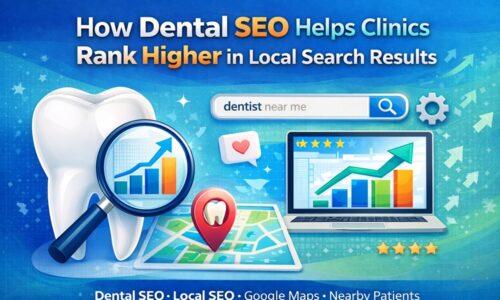In the rapidly evolving landscape of digital marketing, where online presence is a cornerstone of success, the role of website design has become more pivotal than ever. A well-designed website is not merely an aesthetic component; it serves as a strategic tool that can significantly impact a brand’s digital marketing efforts. In this article, we will explore the multifaceted relationship between website design and digital marketing, shedding light on how a thoughtful and user-centric design can enhance the overall effectiveness of online campaigns.
1. First Impressions Matter:
The old adage “first impressions are lasting impressions” holds true in the digital realm as well. A website is often the first point of contact between a brand and its audience. Users form an opinion about a website within seconds, and this initial impression can influence their decision to stay or leave.
A visually appealing and well-organized website not only captures the attention of visitors but also instills trust in the brand. This trust is a fundamental building block for successful digital marketing initiatives, as users are more likely to engage with a brand they perceive as professional and reliable.
2. User Experience (UX) and Conversion Rates:
Website design directly influences the user experience (UX), which plays a crucial role in determining conversion rates. A website that is easy to navigate, with intuitive design and clear calls-to-action, encourages users to explore further and take desired actions.
Conversely, a poorly designed website can lead to frustration and high bounce rates. Digital marketing efforts, such as pay-per-click (PPC) advertising or social media campaigns, may drive traffic to a site, but if the user experience is subpar, the conversion rates are likely to suffer. A seamless and enjoyable UX is, therefore, a prerequisite for successful digital marketing campaigns.
3. Mobile Responsiveness:
With the increasing use of smartphones, having a mobile-responsive website is no longer a luxury but a necessity. Google’s algorithms prioritize mobile-friendly websites, and a large percentage of users access the internet through mobile devices.
Digital marketing strategies need to consider the mobile experience, and a responsive website design ensures that the content adapts to different screen sizes. This not only improves search engine rankings but also enhances user engagement, as visitors can easily access and navigate the site on their preferred devices.
4. Search Engine Optimization (SEO):
Website design and SEO are intricately linked. Search engines evaluate various design elements to determine a website’s relevance and credibility. Factors such as site structure, URL structure, image optimization, and page load speed all contribute to a website’s SEO performance.
A well-optimized website is more likely to rank higher in search engine results, increasing its visibility to potential customers. Digital marketing efforts, including content marketing and link building, are more effective when supported by a strong SEO foundation achieved through thoughtful website design.
5. Branding Consistency:
Consistency in branding is essential for building brand recognition and trust. Website design plays a key role in maintaining a consistent brand identity across various digital channels. The colors, fonts, and visual elements used in the design should align with the overall brand image.
When digital marketing campaigns drive traffic to a website, users should experience a seamless transition from the campaign to the website itself. This consistency reinforces the brand message and helps in establishing a strong and recognizable brand identity.
Conclusion:
In the ever-evolving digital marketing landscape, a well-designed website is not just a virtual storefront but a dynamic tool that can significantly impact a brand’s success. From creating positive first impressions to influencing user experience, supporting SEO efforts, and maintaining brand consistency, website design is a linchpin in the digital marketing ecosystem.
Businesses that recognize the symbiotic relationship between website design and digital marketing are better positioned to thrive in the competitive online space. As technology and consumer behavior continue to evolve, investing in a user-centric and strategically designed website will remain a cornerstone of successful digital marketing strategies.















